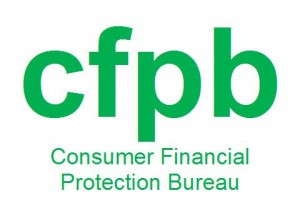WASHINGTON, D.C.
Consumer Financial Protection Bureau fined Wells Fargo Bank $100 million for the widespread illegal practice of secretly opening unauthorized deposit and credit card accounts, according to officials.
Prodded by sales targets and compensation incentives, bank employees secretly opened accounts and funded them by transferring funds from consumers’ authorized accounts without their  knowledge or consent, often racking up fees and other charges, officials said.
knowledge or consent, often racking up fees and other charges, officials said.
According to the bank’s own analysis, employees opened more than two million deposit and credit card accounts that may not have been authorized by consumers.
Wells Fargo will pay full restitution to all victims and a $100 million fine to the Financial Protection Bureau’s Civil Penalty Fund. The bank will also pay an additional $35 million penalty to the Office of the Comptroller of the Currency, and another $50 million to the City and County of Los Angeles.
“Wells Fargo employees secretly opened unauthorized accounts to hit sales targets and receive bonuses,” said Financial Protection Bureau Director Richard Cordray. “Because of the severity of these violations, Wells Fargo is paying the largest penalty the CFPB has ever imposed. Today’s action should serve notice to the entire industry that financial incentive programs, if not monitored carefully, carry serious risks that can have serious legal consequences.”
The full text of the Financial Protection Bureau’s Consent Order can be found at:http://files.consumerfinance.gov/f/documents/092016_cfpb_WFBconsentorder.pdf
Wells Fargo, headquartered in Sioux Falls, S.D., is one of the biggest banks in the country and offers many consumer financial products and services, including savings and checking accounts, credit cards, debit and ATM cards, and online-banking services.
In recent years, the bank has sought to distinguish itself in the marketplace as a leader in “cross selling” these products and services to existing customers who did not already have them, according to officials.
When cross selling is based on efforts to generate more business from existing customers based on strong customer satisfaction and excellent customer service, it is a common and accepted business practice.
But employees were encouraged to sign up existing clients for deposit accounts, credit cards, debit cards, and online banking, and the bank failed to monitor the implementation of these programs with adequate care.
According to today’s enforcement action, thousands of Wells Fargo employees illegally enrolled consumers in these products and services without their knowledge or consent in order to obtain financial compensation for meeting sales targets.
The Dodd-Frank Wall Street Reform and Consumer Protection Act prohibits unfair, deceptive, and abusive acts and practices.
Wells Fargo’s violations include:
Opening deposit accounts and transferring funds without authorization: According to the bank’s own analysis, employees opened roughly 1.5 million deposit accounts that may not have been authorized by consumers. Employees then transferred funds from consumers’ authorized accounts to temporarily fund the new, unauthorized accounts.
This widespread practice gave the employees credit for opening the new accounts, allowing them to earn additional compensation and to meet the bank’s sales goals. Consumers, in turn, were sometimes harmed because the bank charged them for insufficient funds or overdraft fees because the money was not in their original accounts.
Applying for credit card accounts without authorization: According to the bank’s own analysis, Wells Fargo employees applied for roughly 565,000 credit card accounts that may not have been authorized by consumers. On those unauthorized credit cards, many consumers incurred annual fees, as well as associated finance or interest charges and other fees.
Issuing and activating debit cards without authorization: Wells Fargo employees requested and issued debit cards without consumers’ knowledge or consent, going so far as to create PINs without telling consumers.
Creating phony email addresses to enroll consumers in online-banking services: Wells Fargo employees created phony email addresses not belonging to consumers to enroll them in online-banking services without their knowledge or consent.
Enforcement Action
Under the Dodd-Frank Wall Street Reform and Consumer Protection Act, the Financial Protection Bureau has the authority to take action against institutions violating consumer financial laws, including engaging in unfair, deceptive, or abusive acts or practices.
Today’s order goes back to Jan. 1, 2011.
Among the things the Financial Protection Bureau’s order requires of Wells Fargo:
Pay full refunds to consumers: Wells Fargo must refund all affected consumers the sum of all monthly maintenance fees, non-sufficient fund fees, overdraft charges, and other fees they paid because of the creation of the unauthorized accounts.
These refunds are expected to total at least $2.5 million. Consumers are not required to take any action to get refunds to which they are entitled.
Ensure proper sales practices: Wells Fargo must hire an independent consultant to conduct a thorough review of its procedures.
Recommendations may include requiring employees to undergo ethical-sales training and reviewing the bank’s performance measurements and sales goals to make sure they are consistent with preventing improper sales practices.
Pay a $100 million fine: Wells Fargo will pay a $100 million penalty to the Financial Protection Bureau’s Civil Penalty Fund. Today’s penalty is the largest the bureau has imposed to date.
The Consumer Financial Protection Bureau is a 21st century agency that helps consumer finance markets work by making rules more effective, by consistently and fairly enforcing those rules, and by empowering consumers to take more control over their economic lives. For more information, visit www.consumerfinance.gov.

